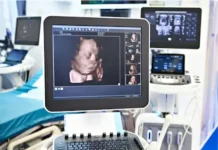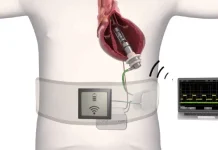Lungpacer Medical announced it received FDA premarket approval for its flagship AeroPace neurostimulation system. AeroPace uses neurostimulation via an electrode-containing cardiovascular catheter and a software-controlled system. It delivers periodic phrenic nerve stimulation through the venous catheter. The system contracts and strengthens the diaphragm in patients on mechanical ventilation.
Exton, Pennsylvania–based Lungpacer’s system received an FDA indication to improve weaning success. It aims to increase weaning, reduce ventilator days and reduce reintubation for patients aged 18 years or older on mechanical ventilation for 96 hours or longer without weaning.
Related: ShiraTronics initiates FDA IDE study for implantable neuromod
The company said in a news release that this marks the first FDA nod for a device of this kind.
Lungpacer says AeroPace offers “several clinical advantages compared to the current standard of care.” Clinical evaluations demonstrated more patients weaned, reducing the risk of remaining on mechanical ventilation at 30 days by up to 37%. Weaning speed came in nearly three days faster and the risk of reintubation at 30 days reduced by up to 60%.
CEO Doug Evans says the FDA approval “represents a new era” for weaning patients off mechanical ventilation.
“We expect that the AeroPace System will improve the standard of care and transform the future care of mechanically ventilated patients by helping them recover durable independent breathing,” Evans said. “In memory of my son, Cameron, who endured the challenges of mechanical ventilation, we are all grateful to the dedicated physicians who conducted our three clinical trials and to the brave patients who participated in them such that their efforts will help many more patients to wean more quickly.”






